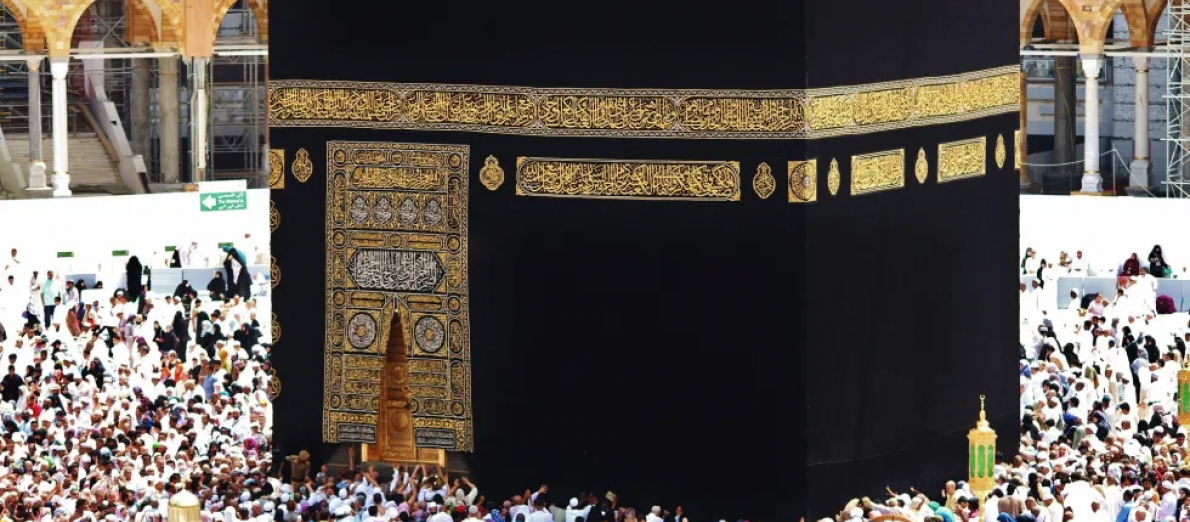This month, if you happen to be traveling through major international airports, you will likely see throngs of middle-aged and elderly pilgrims in white garb, huddled in groups, shuffling their way towards the Holy Land. Many have waited their entire lives for this trip—patiently saving their funds to afford the journey or waiting to obtain a visa. Regardless, many pilgrims tend to be older adults who have raised their children, settled their worldly affairs, and are ready to join the sacred caravan. Surprisingly, the population of younger adults fulfilling their hajj rites is increasing, and there are so many advantages to doing so.
Undoubtedly, the hajj pilgrimage is strenuous. Circumambulating the ka’bah or pacing between Safa and Marwa aren’t incredibly taxing tasks on their own or at your leisure, but performing them in a crowd of millions while vying for the same space is no small feat. Sleeping on the rocky earth in Muzdalifa, trekking to the tent city in Mina, and the daily hike to stone the jamaraat are challenging when pressed in a slow-moving mass of people. Needless to say, the experience will challenge your stamina, health, and patience. While some elders find it difficult to cope and may need medical attention to recuperate, youth will likely have the energy and vigor to persist and recover more quickly. More importantly, they have an amazing opportunity, which some call the mark of an accepted pilgrimage—they can be of service and assistance to other pilgrims, who we refer to as “guests of the Most Merciful”.
Young adults generally have less logistics to sort out, depending on their family dynamic. If one is not yet married or not a parent, full attention and focus can be dedicated to the hajj, without having to tend to family and responsibilities back home. Many believe that hajj is for those who’ve attained a high degree of religiosity. However, we must remember that hajj is an obligation for every adult Muslim who is capable. Hajj is not a crown of piety, and it may actually be the transformative event that helps young adults rededicate themselves to the service of God and humanity. It’s a humbling experience to see yourself as such a tiny part of the whole. All pilgrims of various nationalities, whether wealthy or poor, sinful or pious, don the same unstitched garments and call out to the same Generous Lord with the cry “I am answering you, Oh God!”
If you feel inspired to be amongst the pilgrims in a future hajj season, here are some practical planning steps to take.
- Make your intention: Once you intend to fulfill your obligation as soon as possible, you can begin strategizing to that end. Even if, despite your efforts, you don’t meet your timeline or goal, you will still reap the reward of directing your heart to a praiseworthy aim.
- Take a close look at your financial obligations: If you have debt, resolve to pay it off as soon as possible. It may be tempting to spend on vacations, new clothes, and entertaining hobbies, but examine your financial habits and create a budget that will help you work towards debt relief and save for your hajj expenses.
- Travel smart: For many of us, hajj is a long and costly journey. Instead of taking annual international trips, save up for the trip of a lifetime. You can add a few destinations en route to hajj to make your long-haul airfare more cost effective instead of traveling back and forth across the world. Taking off a semester of studies or delaying the start of a new job can give you the time you need to make the most out of your hajj sojourn.
- Hajj as a gift: Imagine gifting your spouse with hajj instead of a diamond ring or an elaborate wedding. Consider receiving donations towards your pilgrimage as graduation gifts instead of gift cards. Prioritizing hajj early in your adult life is a great foundation for whatever follows. Simple celebrations of life’s milestones that don’t incur debt will undoubtedly increase the blessings and decrease the stress in your life.
- Keep it real: Time is not promised to anyone. If you plan on waiting to make hajj until you’re 60, retired, or after achieving any other long-term goal, ponder this—time waits for no one. If Allah has blessed you with faith, the means, and good enough health to make hajj, answer the call and pray that your great sacrifice is accepted. Before you pursue higher degrees or travel overseas to seek knowledge, prioritize fulfilling this holy rite as soon as possible.
Chantal Blake is a travel writer and plant-based consultant from New York City. She currently lives with her unschooling family in Muscat, Oman. Her published work can be found at www.WayfaringGreenSoul.com.





















































